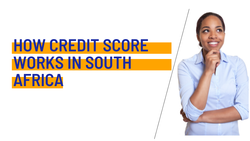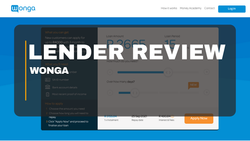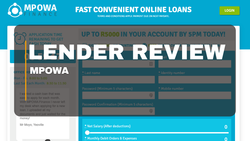You can use loans to get money for emergencies, investments, and purchasing assets. However, before your personal loan or any other type of loan application can be approved, banks and other loan providers first conduct an assessment to determine whether it would be a good idea to lend you money. If you are eligible for a loan, your financial information will be used to determine the size of the loan. In short, lenders will be trying to calculate your loan eligibility. But what exactly is loan eligibility, and how is it calculated?
What Does Loan Eligibility Mean?
In broad terms, loan eligibility refers to how fit an individual is to get a loan from lenders. There are different types of loans and financial institutions use different methods to calculate loan eligibility. This means that loan eligibility criteria for a personal loan are probably different from a home loan.
Some of the things considered when calculating your loan eligibility include your income, current loans, obligations, and additional sources of income. Apart from these factors, lenders can also consider your age and your employment details, the type of loan you want, the loan amount, and your tenure.
How is Loan Eligibility Calculated in South Africa?
Several factors are used to calculate loan eligibility in South Africa. First, you need a good track record for paying back loans before any lender can approve your loan application. Your history with loans must show that you pay debts in full and on time. Lenders will also consider other things.
Monthly Income
Your monthly income is a contributing factor in deciding whether you qualify for a loan or not in South Africa. If you don't have a monthly income, then it might be difficult for a lender to believe that you will be able to give them back their money. On the other hand, if you are gainfully employed or self-employed, the amount you earn will be used to determine the loan amount you are eligible for. People who earn a lot of money generally find it easier to get approved for loans.

If you are an employee, your monthly income is generally stated as a gross salary. This is a combination of basic salary, medical allowance, housing allowance, transport allowance, and other allowances. However, the sum of these amounts is not what you take home, so this is not the monthly income that's considered when calculating loan eligibility. What you take home is known as the net salary, and it's the amount left after deducting provident funds, taxes, and other substractions, depending on company policy. This is what lenders consider when calculating your possible loan amount.
Your Age
Depending on the type of loan you are applying for, the loan amount, and tenure, age is another factor that might be considered when calculating loan eligibility. Regardless of your monthly income, the maximum tenure that you can get with most loans is 20 years. However, you may be able to get a longer repayment period if you are younger.
Credit Score
Your credit score is the number that represents your creditworthiness to the lender. It tells a story about your financial reputation. If you have a low credit score, your chances of getting approved for a loan become slimmer. A low credit score basically tells people that you either don't pay debts on time or you don't pay them at all. Also, even if you get approval, you won't be able to get very good deals on loans if you have a low credit score.
A lot of lenders decline applications from people with low credit scores. To boost your chances of getting a loan, you must first check your credit score before submitting applications. If your credit score is low, you should work on bringing it up to get better deals.
Current Liabilities
People with many liabilities can have a difficult time getting approved for personal loans. If you are already paying back other debts, you will have very little room for more loans. This is why lenders weigh your debt-to-income ratio before approving your loan application. This makes sense. If most of your salary is going towards repayments, you may not have enough money for your expenses.
Where to Check Your Loan Eligibility?
The best way to find out if you are eligible for a loan is to approach different lenders. For instance, if you want a loan from a bank, the bank will decide if you qualify or not. Most banks and lenders in South Africa have different loan eligibility calculators on their websites. These calculators will tell you how much you qualify for and how long you will have to repay a potential loan. However, loan calculators are not the deciding factor. They do not check things like credit history, so while it may seem like you may qualify for a loan, the bank can discover something about your credit history that can disqualify your application.
Apart from approaching lenders directly, you can also find out if you are eligible for a loan using MyLoan. You can search MyLoan for different loan offers that you qualify for. This is an incredibly useful resource since you will find several types of loans and loan offers in one place instead of approaching a list of lenders manually.
How to Improve Loan Eligibility?
Now that you know what loan eligibility is and how it's calculated, let's move on and talk about how to improve loan eligibility. There are various methods to improve your loan eligibility. However, it's important to note that some methods may be more effective than others, depending on how your preferred lender calculates loan eligibility. Here are some of the most effective ways to increase your loan eligibility.
Work on Your Credit Score
One of the best ways to boost your personal loan eligibility is to improve your credit score. There are several things you can do to achieve that. You can start by ensuring that all loan repayments and bills are paid on time. You also need to pay your card dues on time if you have a credit card. Your credit score will start improving when your seriousness in settling debts improves. Any delays will negatively affect your personal loan eligibility.
Clear Your Debt Obligation
Another thing you can do to improve your personal loan eligibility is to clear your debts. Whenever you apply for a personal loan, lenders check your debt-to-income ratio. If you have a lot of outstanding debts, that can work against you and decrease your chances of getting a loan. Therefore, if you want to increase your eligibility, you should clear all loan obligations. Paying debts will also improve your credit score.
The ratio used to evaluate whether your current debts leave enough room for more loans is the Fixed Obligation to Income Ratio. This ratio is a critical measure for determining whether you are a fit candidate for loans. Most financial institutions assume that you need at least half of your monthly income for your living expenses. Therefore, it makes sense to keep your Fixed Obligation to Income Ratio(FOIR) at less than 40% to increase the chances of getting your personal loan applications approved.
Declare Additional Sources of Income
Increasing your monthly income is another effective method of increasing your eligibility for loans. If your basic income is too low, you can increase your personal loan eligibility by declaring additional sources of income. For instance, you can add rental income and earnings from a part-time business to your monthly income. Additional income means more money, which can help improve your financial health and boost your FOIR.
From the lender's perspective, the more you earn, the more likely you will pay back your debts. Therefore, if you have a lot of money left after handling your obligations, your eligibility will improve significantly.
Existing Relationships With Lenders
Another effective way to increase your loan approval chances is to establish relationships with lenders. This method works when you are trying to get a personal loan or any other type of loan from banks. You can open an account with a bank if you have a monthly salary or if you are self-employed. Once you open an account with the bank, they will have a clearer picture of your finances. This especially works if the bank receives your monthly income. Your financial records will be at their disposal so they can easily work out how much to qualify for.
If crucial to understand how to improve loan eligibility. This will increase your chances of getting approved when you apply for a personal loan or any other loan. Experts also suggest getting a co-applicant if you are applying for a home loan. This can improve your loan eligibility. However, such a move will only work if the person you are applying with has a good credit score and a monthly income.
How much do you need?
Get a Loan up to R500 000
Representative example: Myloan is an online loan comparison tool and not a credit provider. We only work with NCR-registered credit providers in South Africa. Our comparison service to consumers is free of charge. Estimated repayments on a loan of R30 000 over 36 months at a maximum annual interest rate of 28% would be R1 360 per month including an initiation fee and monthly service fees. Interest rates charged by credit providers may, however, start as low as 11%. Repayment terms can range from 6 to 72 months.

























